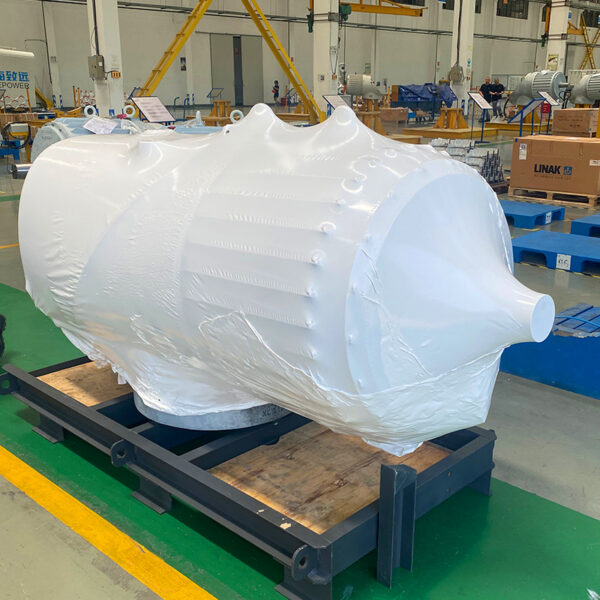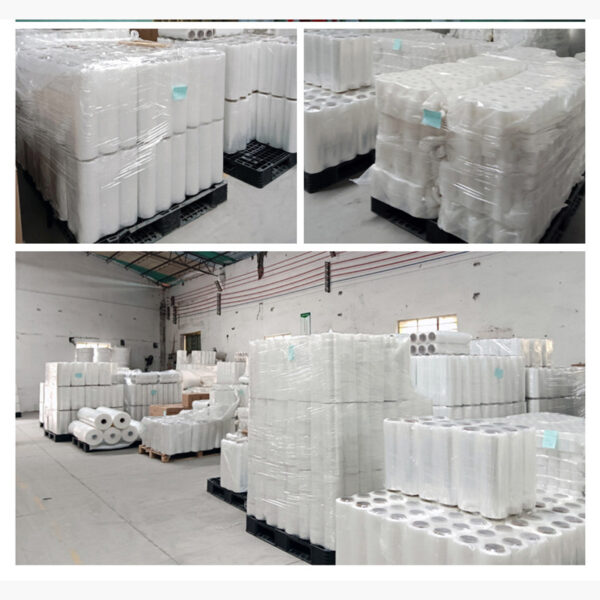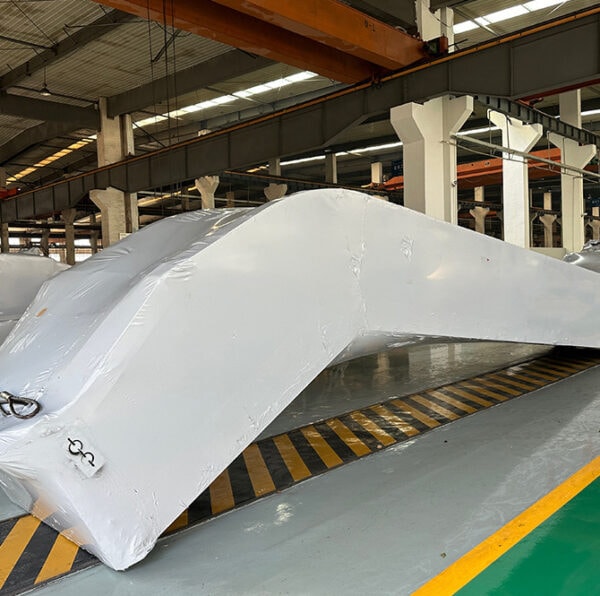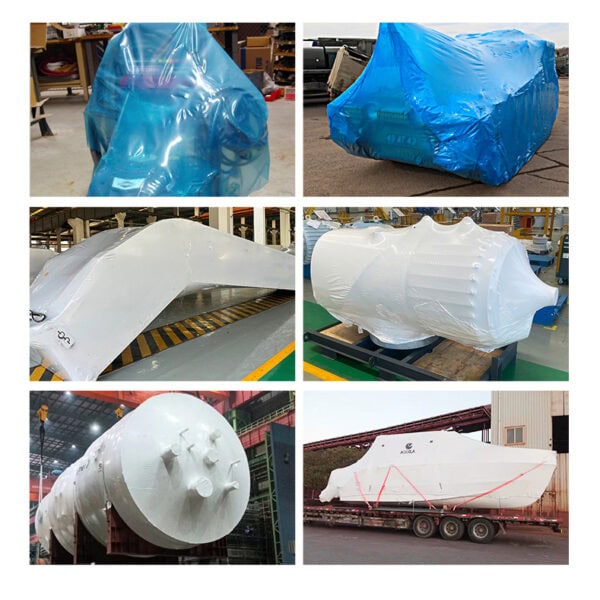Industrial goods and products often face damage from environmental exposure during storage or transit. Without proper protection, businesses risk product quality and increased costs due to damage. Industrial shrink wrap offers a durable, versatile solution to safeguard products in harsh conditions.
Industrial shrink wrap is a strong, heat-applied plastic film that tightly encases products, protecting them from external elements, physical damage, and environmental wear during transport and storage.
Shrink wrap’s versatility makes it suitable for industries ranging from food packaging to heavy machinery.

Definition of Industrial Shrink Wrap
Industrial shrink wrap is a durable plastic film used for protecting large, bulky, or heavy items. When heat is applied, the film shrinks and conforms to the product’s shape, creating a secure seal that shields against external elements such as moisture, dust, and UV rays. This type of wrap is commonly applied using specialized equipment, such as a shrink wrap machine, which ensures an even, airtight layer around the item.
Materials Used in Industrial Shrink Wrap
Several materials are used in industrial shrink wrap, including polyethylene, polyolefin, and PVC. Each material offers different qualities:
- Polyethylene: Known for its durability and tear resistance, ideal for large, heavy items.
- Polyolefin: Soft and flexible, suitable for delicate products.
- PVC: Offers high clarity, making it useful for items that require visibility through the packaging.
The choice of material impacts the wrap’s strength, flexibility, and UV resistance, tailoring it for specific applications.
Shrink Wrap vs. Other Packaging Options
Unlike other packaging materials, shrink wrap forms a tighter, heat-sealed fit that conforms closely to the shape of the product. This feature differentiates it from options like plastic wrap or vacuum packaging. While a vacuum packaging machine removes air to protect perishable goods, shrink wrap provides a robust outer layer ideal for handling larger, more durable items and shielding against environmental factors without requiring a vacuum seal.

Types of Shrink Wrap Film
Different types of shrink wrap film serve various industrial purposes:
- Polyolefin Shrink Wrap: Suitable for sensitive items needing a gentle wrap.
- PVC Shrink Wrap: Known for versatility and high clarity, ideal for general packaging.
- Heavy-Duty Polyethylene: Designed for large, heavy products such as machinery or boats, offering extreme durability and tear resistance.
Each type is chosen based on the required flexibility, strength, and transparency for a particular application.
Common Applications of Industrial Shrink Wrap
Industrial shrink wrap is widely used across industries:
- Marine Industry: Protects boats from environmental exposure during off-season storage.
- Construction: Covers large machinery and equipment for safe transport.
- Manufacturing and Warehousing: Wraps large items like pallets, machinery, and assembly parts for secure storage and handling.
Its ability to form a tight seal around items makes shrink wrap invaluable for protecting goods against weather and transit wear.
Advantages of Using Industrial Shrink Wrap
Industrial shrink wrap offers several benefits:
- Weatherproofing and UV Resistance: Protects items from rain, dust, and sunlight, ensuring product integrity.
- Tamper-Evidence: Its tight seal makes it evident if the wrap has been opened, which helps deter tampering.
- Versatility: Applicable across a range of items, from small machinery to entire pallets, shrink wrap adapts to the shape and size of each product, delivering consistent protection.
These advantages make it a popular choice for businesses looking to enhance product safety in transport and storage.

Disadvantages and Considerations
While shrink wrap provides excellent protection, it has some drawbacks:
- Cost: Shrink wrap materials and equipment, such as an industrial shrink wrap machine, can be relatively expensive, especially for large-scale applications.
- Application Requirements: Proper application requires heat guns or shrink tunnels, along with trained personnel, which adds to initial setup and operational costs.
Considering these factors is essential for businesses planning to incorporate shrink wrap into their packaging processes.
Durability and Longevity of Shrink Wrap
With appropriate material selection and application, industrial shrink wrap can last several months to years. Polyethylene-based films are especially durable and resistant to environmental wear, while UV-resistant variants extend longevity in outdoor conditions. Factors such as sunlight exposure, temperature fluctuations, and moisture levels affect the lifespan of the wrap, making UV-resistant options ideal for items stored outdoors.

Application Methods and Equipment
Applying shrink wrap correctly involves specific tools and techniques:
- Heat Guns: Used for smaller items or touch-up work, providing precise control over the wrapping process.
- Shrink Tunnels and Wrap Machines: These automated systems are ideal for large-scale wrapping, offering even heat distribution and efficient application.
Advanced shrink wrapping equipment, like a high-capacity packaging machine, ensures consistency in shrink wrap application, maintaining a uniform seal across all products.
Best Practices for Effective Shrink Wrapping
For optimal results, follow these best practices:
- Temperature Control: Maintain the correct temperature settings during application to ensure a secure, lasting seal.
- Sealing Edges Properly: Ensure the edges are well-sealed to avoid moisture infiltration and to increase wrap durability.
- Use Quality Equipment: A reliable shrink wrap machine provides a consistent application, ensuring the wrap remains intact during handling and transit.
These steps help maximize the protective qualities of industrial shrink wrap, offering businesses a reliable way to safeguard their products.
Conclusion
Industrial shrink wrap is a versatile and reliable solution for protecting a wide range of products, from small goods to large industrial machinery. Its durability, weather resistance, and ability to provide tamper-evident protection make it a preferred choice across numerous sectors.









